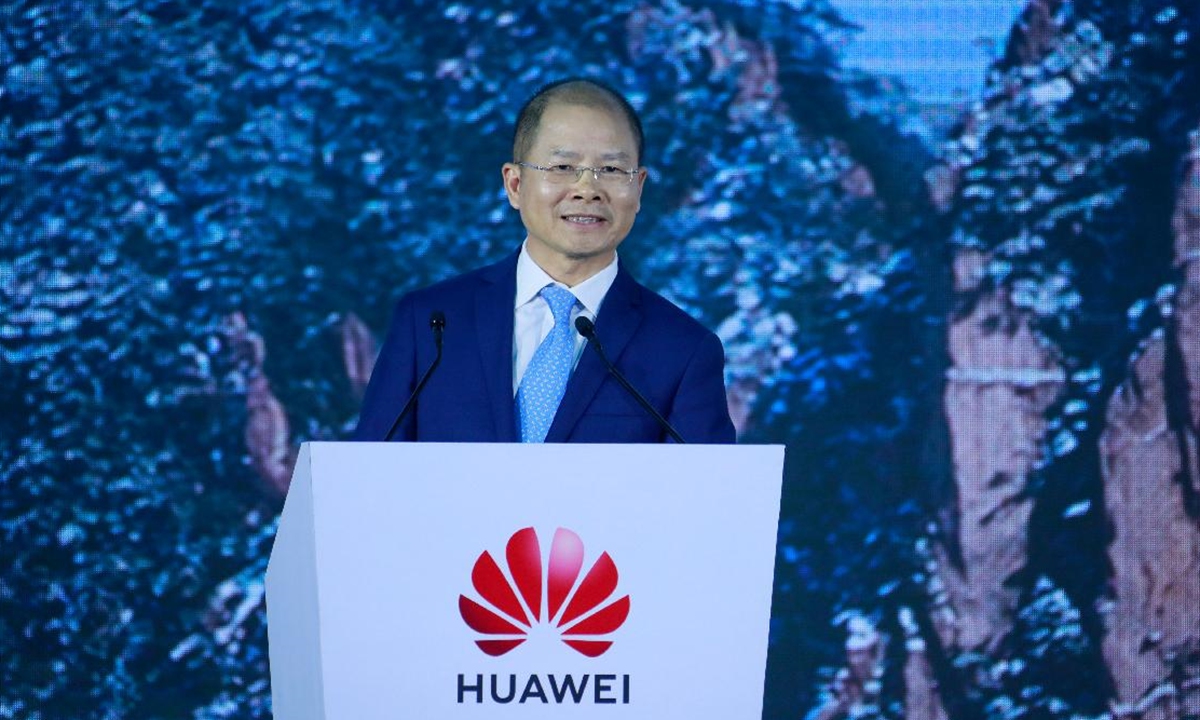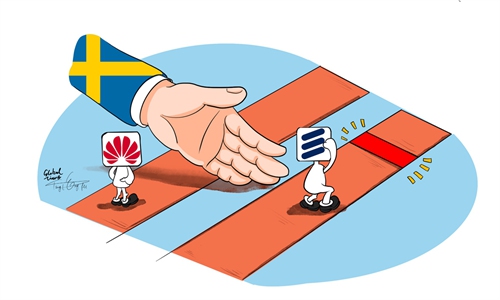Sweden warned not to fall into US ‘trap’ to ban Chinese firms
Falling into US ‘trap’ will hurt Swedish firms, 5G rollout: analysts

Huawei rotating chairman Eric Xu Zhijun Photo: Courtesy of Huawei
As a Sweden court is weighing a decision that could decide Huawei's fate in the country, Chinese analysts warned that Sweden - along with other European countries - should be aware that a Huawei ban at the behest of the US may hurt their own companies and dampen their roles in the 5G sector.
Analysts also cautioned that the US may have treated Sweden with some "sweetness" for the decision, but the latter must avoid falling into a "US trap," as the US will sacrifice the interests of its so-called "allies" at any time for its own benefit.
The remarks come as a verdict that will decide Huawei's role in Sweden's 5G market is looming.
In October last year, telecom regulator the Swedish Post and Telecom Authority (PTS) banned the use of equipment from Huawei and ZTE by its telecom operators taking part in 5G auctions. Huawei in January appealed against the decision, and a verdict is expected to come in the next few weeks, according to a Reuters report.
"It feels extremely strange that the PTS would make a decision almost overnight that excludes us from the Swedish market, just because we have our domicile in China. It would of course be commercially devastating for Huawei not to always put our customers first and risk destroying the relationship we have built," Kenneth Fredriksen, executive vice president at Huawei's central east Europe and Nordic region, said in a statement on the company's website in April.
On May 10, the Global Times learned from sources that after the Huawei fallout, Ericsson's fate in China may also be at risk, and Sweden faces the last chance to pull back its wrong decision to exclude Chinese firms such as Huawei from participating in the country's 5G construction.
While Ericsson has been invited to participate in 5G equipment tests in China, that does not mean it will be chosen. Sweden has to carefully reconsider its China policy, sources told the Global Times in an exclusive interview.
Chinese officials have repeatedly asked Sweden several times to correct its wrong decisions and provide Chinese companies with an open, fair, and non-discriminatory business environment to avoid a negative impact on bilateral economic and trade cooperation as well as Swedish companies' operations in China.
"If Ericsson loses the chance to stay in China, it will lose the experience field of the world's most advanced 5G technology, and can only practice its technologies in second-rate scenarios, which will further dampen its ability," Xiang Ligang, director-general of the Beijing-based Information Consumption Alliance, told the Global Times.
According to Ericsson's annual report, China contributed about 8.1 percent of its net sales in 2020, up from 7.0 percent in 2019. Sales in China rose 18.2 percent from 2019, while those in the US grew 6.2 percent year-on-year.
Analysts said that Sweden's decision is largely controlled by the US, which has been aggressively pressuring its allies to cut cooperation with Chinese firms such as Huawei citing so-called "national security" excuses. It has so far failed to disclose any solid evidence.
"Some European countries may hope that by cutting ties with Huawei, the US will 'play together' with them and share with them in the 6G era, and achieve win-win results in the sector," Cui Hongjian, director of the Department of European Studies at the China Institute of International Studies, told the Global Times on Sunday.
But the US may not have the technology strength that it has claimed, and what it will do after separating China and Europe, which have been dominating the area, remains largely unknown, Cui said.
Industry practitioners said that the US is now "lagging behind in telecommunications," whether in 4G, 5G or even 6G, and has basically been marginalized.
The true intention of the US is to confine Chinese enterprises in China, while keeping European telecommunication enterprises in Europe and the US, Ma Jihua, a senior tech industry analyst based in Beijing, told the Global Times.
However, this move will sever the long-standing cooperative relationship between China and Europe, and in particular it will avoid the possibility that the two will still engage in next-generation technology exchanges, Ma said.
After common interests between China and the Europe are lost, the US can divide and rule the industry as it wishes, Ma noted.
"It can choose to cooperate with Europe or China. And by then, both sides will have to make concessions to the US."


